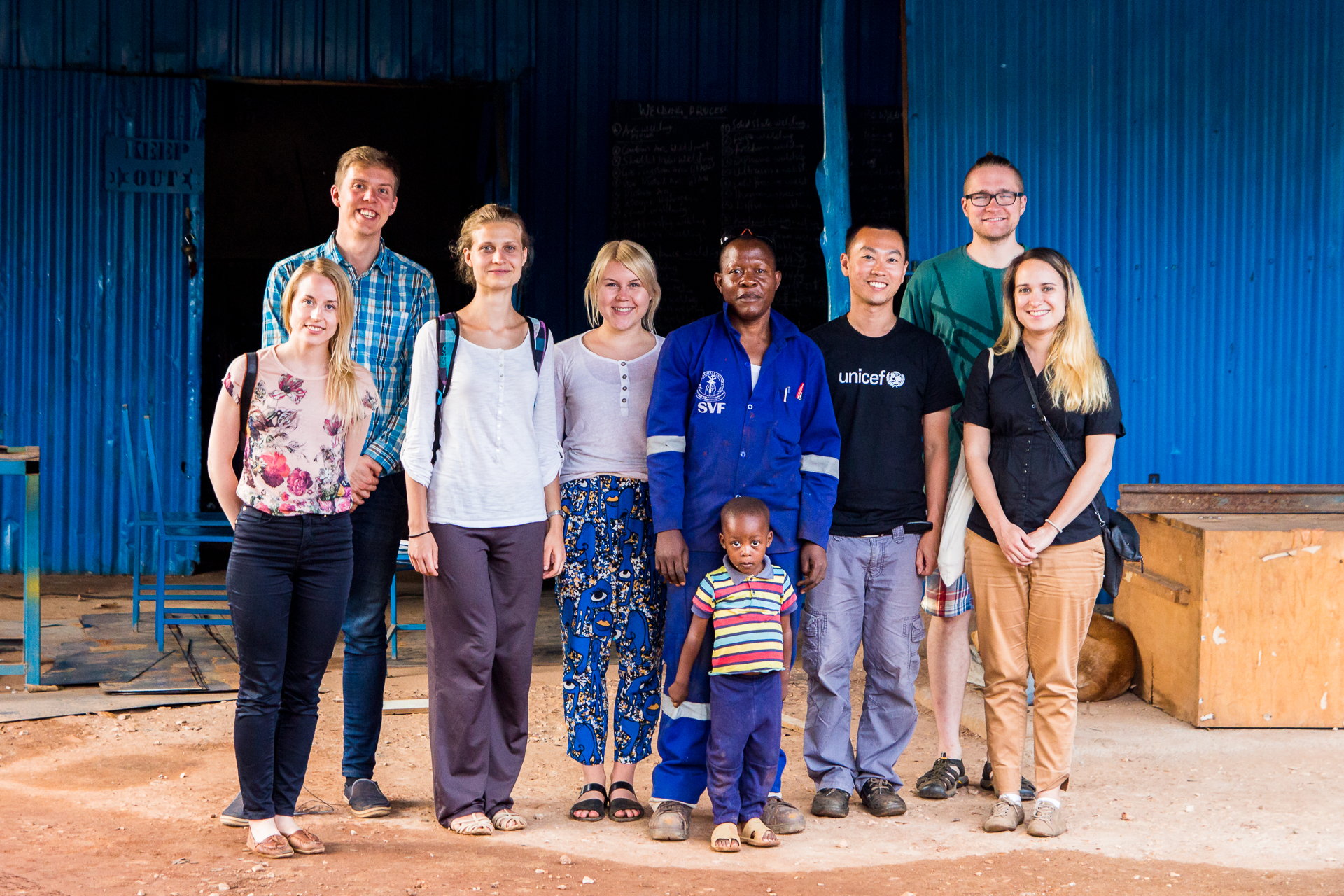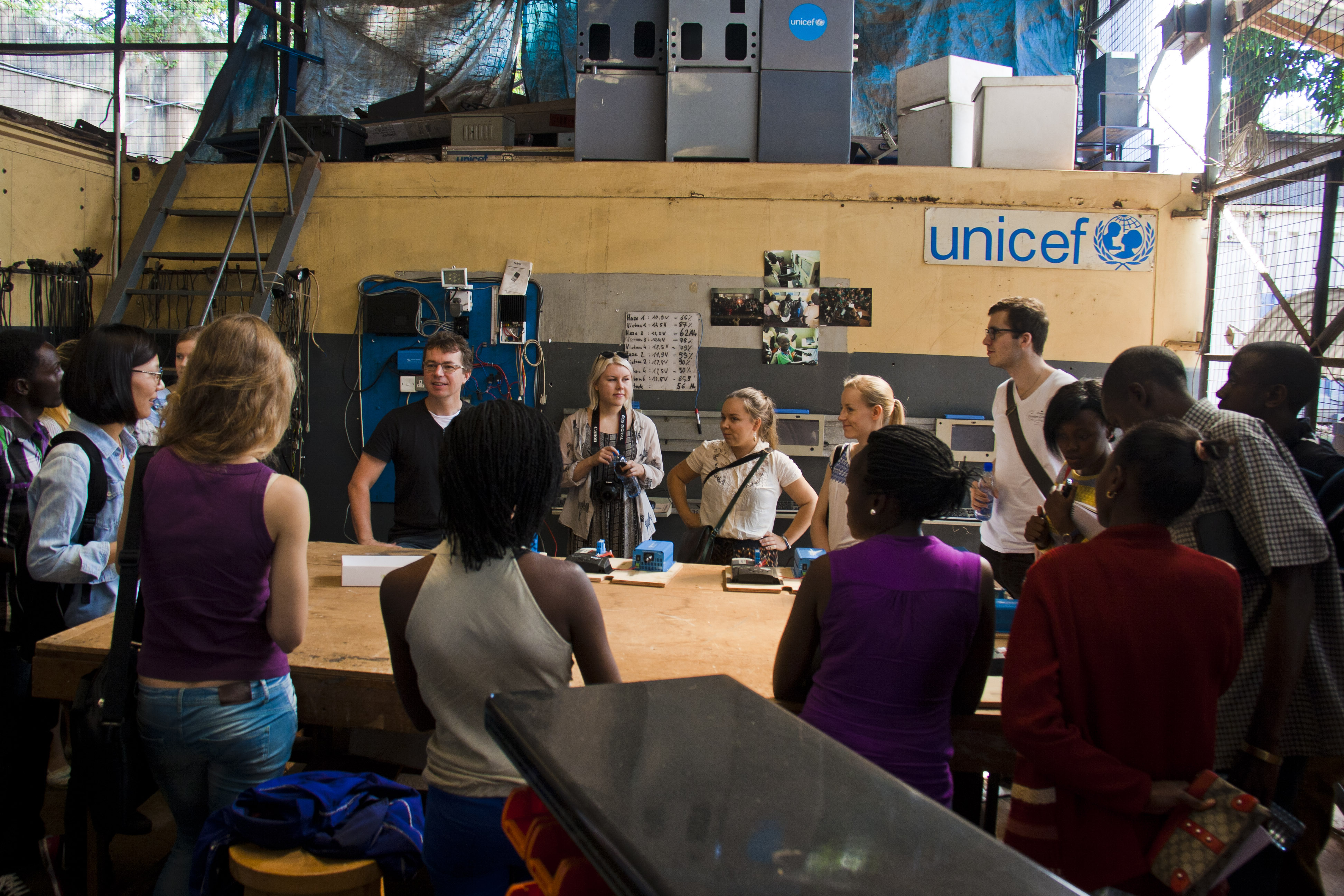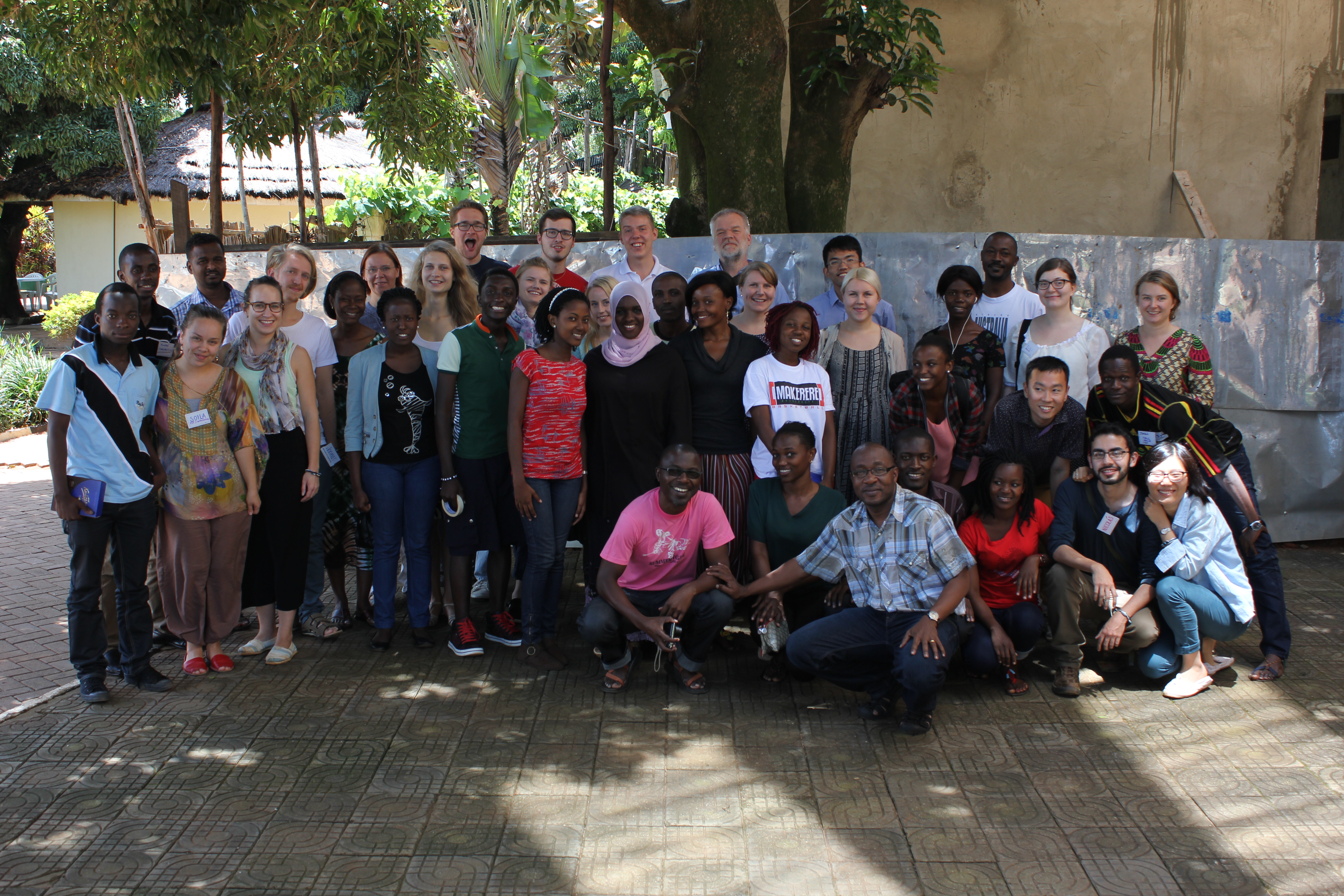UniWASH
Igniting a change:
Empowering Ugandan schools to sustain themselves in a clean way
Completed in 8 months for UNICEF together with Joonas Ala-Karvia, Yuan Cao, Derek Chan, Vilma Hämäläinen, Pilvi Iso-Markku, Saila Kivilahti and Linda Sivander.
My role: research, data management, storytelling, team management.
The proposed concept, PoopLoop, is a holistic business model of utilising human waste-based fertiliser in farming. It intends to turn human waste-based fertiliser, originated from the school latrines, into a sustainable business for the communities and their small and medium enterprises (SMEs). Other parties include trained farmers, local government and UNICEF Finland as well as UNICEF Uganda.
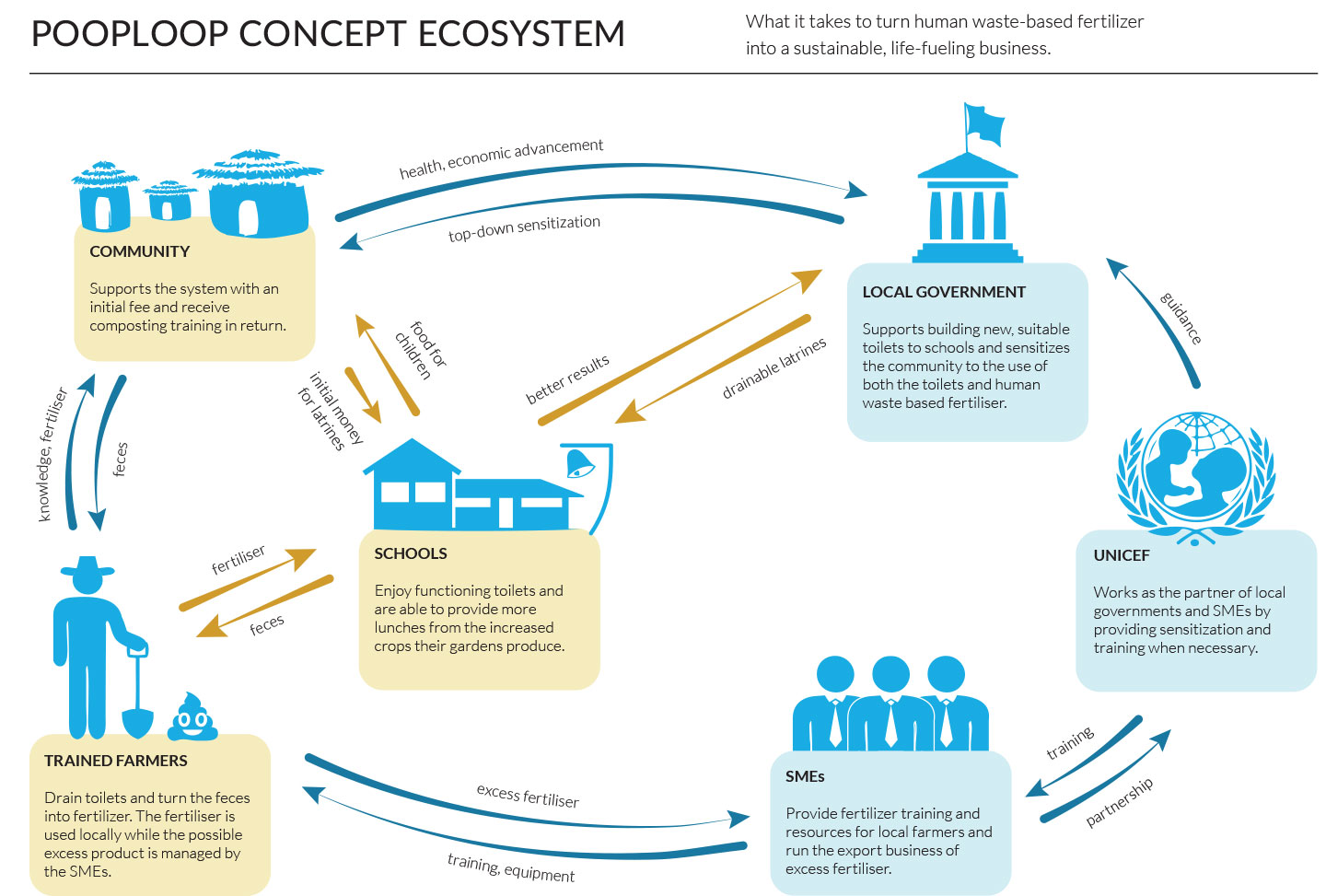
Links: IDBM Website, UNICEF Stories of Innovation, Aalto Global Impact.
Interim Video, delivered in December 2014
Final Event Teaser Video, delivered in April 2015

The problem
Having access to safe drinking water, sanitation and hygiene (WASH) is a fundamental human right. In Uganda, less than half of the population uses improved sanitation facilities, and about a third lives over 1 km away from the closest water source. Primary schools in rural areas struggle with overutilization and poor maintenance of scarce facilities, and little support is in place, especially for girls, to take care of their personal hygiene. Because of this, a number of preventable illnesses persist, and children face challenges in their effort to complete their primary education.
The process
The process during the academic year of 2014-2015 included a 3-week field period in the autumn 2014 and a 2-week period in the spring 2015. The field trips were conducted mainly in Acholiland, but also in Kampala, the capital of Uganda. Throughout the project, the principles of Human Centred Design have been used as the core framework of the process. The main methods utilized in the field trips were interviews, focus group discussions, observational activities and co-creational workshops with the pupils, school staff, community members and local government.
After the research findings have been synthesized, several brainstorming sessions have been conducted to map out the possible areas of improvement and narrow down towards the final concept proposal.

Research findings
Lack of safe and clean pit latrines
The main indicator of this problem is the children’s behaviour; many of the children do not use the school latrines but practice open defecation instead. They fear going to the latrines, since they are dark, smelly, and dirty; without shoes, the children can even catch infections from the floor. Furthermore, many children get sick during the school year, they miss lessons and even drop out. Children are also afraid of being bullied by other students. The root manifestations of the lack of safe and clean pit latrines are their poor design and construction, their overutilization and poor maintenance as well as the lack hygiene materials at the school.
Lack of social networks
Children carry big responsibilities in the community and often lack examples from adults. This is due to the fact that the population of the area is young, there are many children living without families, and families coming from the internally displaced persons’ camps are scattered in places different from their ancestral homes. Also, the birth rate is high in Acholiland, and many of the children have lost their families during the insurgency. This leads to children having great responsibility in the communities. Moreover, the families coming from the camps have had to adapt to a new environment as they have returned to different areas, were they their ancestral homes or not. This has affected the social structure - for example, the tradition of telling stories and teaching children at a bonfire does not exist in the same way anymore. Core familial ties have become more important than the clan.
Lack of economic activities
The visible indicators of the lack of economic activities include the limited amount of jobs available, the emphasis on short-term income and the focus of farming on mainly small food crops inside families. This means that there is low productivity and that there is no surplus income. The manifestations do not mean that the area lacks of all economic activities, but that the activities are not concentrating on pursuing a profit.
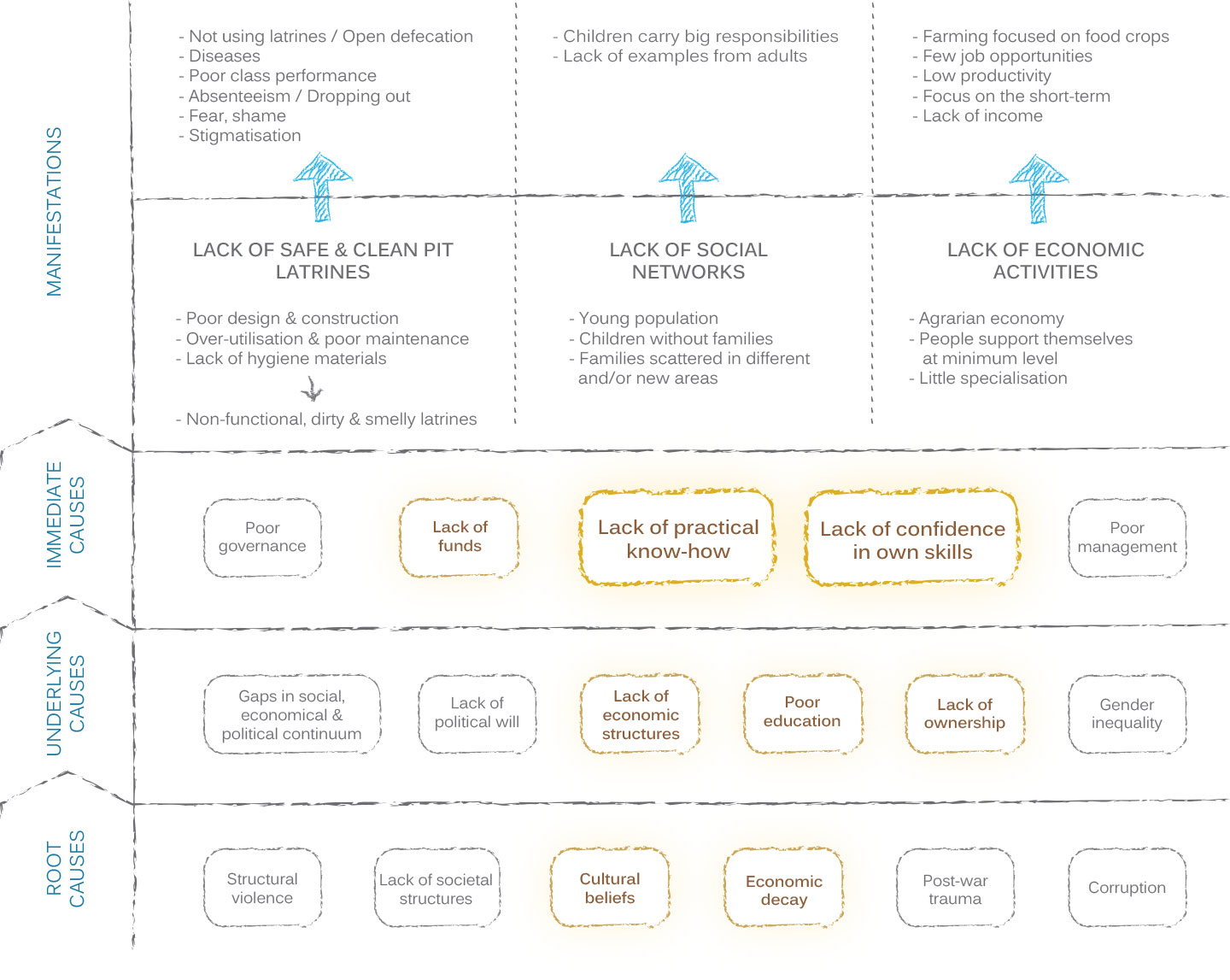
Proposed concept
The proposed concept, PoopLoop, is a holistic business model of utilising human waste-based fertiliser in farming. Simply put, human waste is drained from school and community latrines by locals, and turned into organic fertiliser that can be sold and used in school, community and family gardens for higher crops yield. The concept intends to turn human waste-based fertiliser, originated from the school latrines, into a sustainable business for the communities and their small and medium enterprises (SMEs). Other parties include trained farmers, local government and UNICEF Finland as well as UNICEF Uganda.
The concept benefits Acholi communities in many ways: the WASH conditions in schools improve as latrines are emptied more often at a lower cost. Using fertiliser increases the yield of food crops, resulting in more food for children in school and at home, supporting their wellbeing and performance in school. PoopLoop also boosts the economic activity, and thus vitality, of the communities; draining services and the production and sale of fertiliser and crops will create sustainable business activity and raise the community income level. Finally, PoopLoop fulfills the UNICEF goal of capacity building as adults in the communities gain new skills, confidence and capacity to support themselves and their children in a sustainable way.

Learnings
While the proposed concept was met with enthusiasm by all of the stakeholders involved in it (including UNICEF Finland and UNICEF Uganda), a lot of the value in our work lies in the research findings. Various activities where we had children, teachers, parents and legislators involved have provided all of us with the knowledge that allowed for UNICEF to navigate further projects with more efficiency and confidence. We, as a multi-cultural and multidisciplinary team of engineers, designers, entrepreneurs and anthropologists, have been extremely proud of the positive reaction to our work and the potential for it to become impactful on one way or another.


